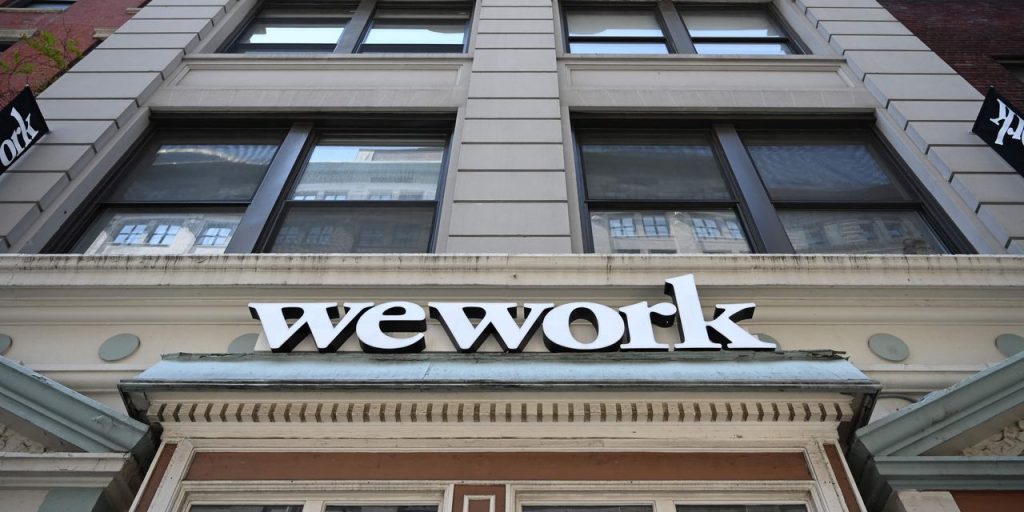Shares of beleaguered WeWork Inc. pulled back 20.7% in premarket trades Monday, after ending Friday’s session up 23%.
WeWork’s
WEWKQ,
stock soared on its over-the-counter debut last week, just days after the office-sharing company filed for Chapter 11 bankruptcy protection. The company filed for Chapter 11 in New Jersey on Nov. 6 and its stock was halted before the open that day. The New York Stock Exchange started the delisting process for WeWork that same day.
Related: WeWork’s stock has continued the strange trend of the bankruptcy bounce
Trading resumed over the counter on Wednesday, with WeWork shares ending their first session as an OTC stock up 91.5%, continuing the strange trend of the bankruptcy bounce.
A similar scenario happened when shares of Bed Bath & Beyond Inc. began trading over the counter in May after the Nasdaq
COMP
started the delisting process for the bankrupt home-goods retailer and sometime meme-stock darling. Despite Bed Bath & Beyond’s well-documented woes, the stock ended its first session as an OTC stock up 30.4%. Bed Bath & Beyond’s shares were canceled in September.
WeWork’s bankruptcy came as no surprise, according to independent equity-research firm New Constructs, which compiles a list of “zombie” stocks at risk of declining to $0 per share.
“WeWork was once valued at $47 billion in 2019, and at that time, we told investors that WeWork was the most ridiculous IPO of 2019,” New Constructs CEO David Trainer, said in a statement last week. “Investing is not a joke and assigning valuations to companies that make no money is a serious issue that needs to be corrected in the marketplace.”
Also see: WeWork Chapter 11 a meme stock reality check: ‘No one should ever buy a stock that is rumored to be headed to bankruptcy’
“WeWork’s bankruptcy epitomizes the past few years of excess liquidity, dangerous easy money policies and reckless behavior from investors, who seemingly invested in anything and everything,” he added. “We encourage investors to take a close look at the companies they are invested in and if these companies are unprofitable, burn cash at high rates and maintain poor business models, it’s time to sell these stocks before share prices decline to zero.”
WeWork went public in a merger with special-purpose acquisition company BowX Acquisition Corp. in 2021, after postponing plans for a traditional IPO in 2019.
Related: WeWork files for bankruptcy, capping a stunning downfall
Cole Smead, CEO of Smead Capital Management, also highlighted the dynamics that drove WeWork’s meteoric rise and spectacular fall. “WeWork’s demise exposes that we have just exited one of the greatest financial euphoria in U.S. history,” he said, in a statement. “However, the clock always strikes twelve and they go back to pumpkins and mice. It doesn’t matter if your largest shareholder builds 100-year plans. These manias happen many times during every century.”
Read the full article here















